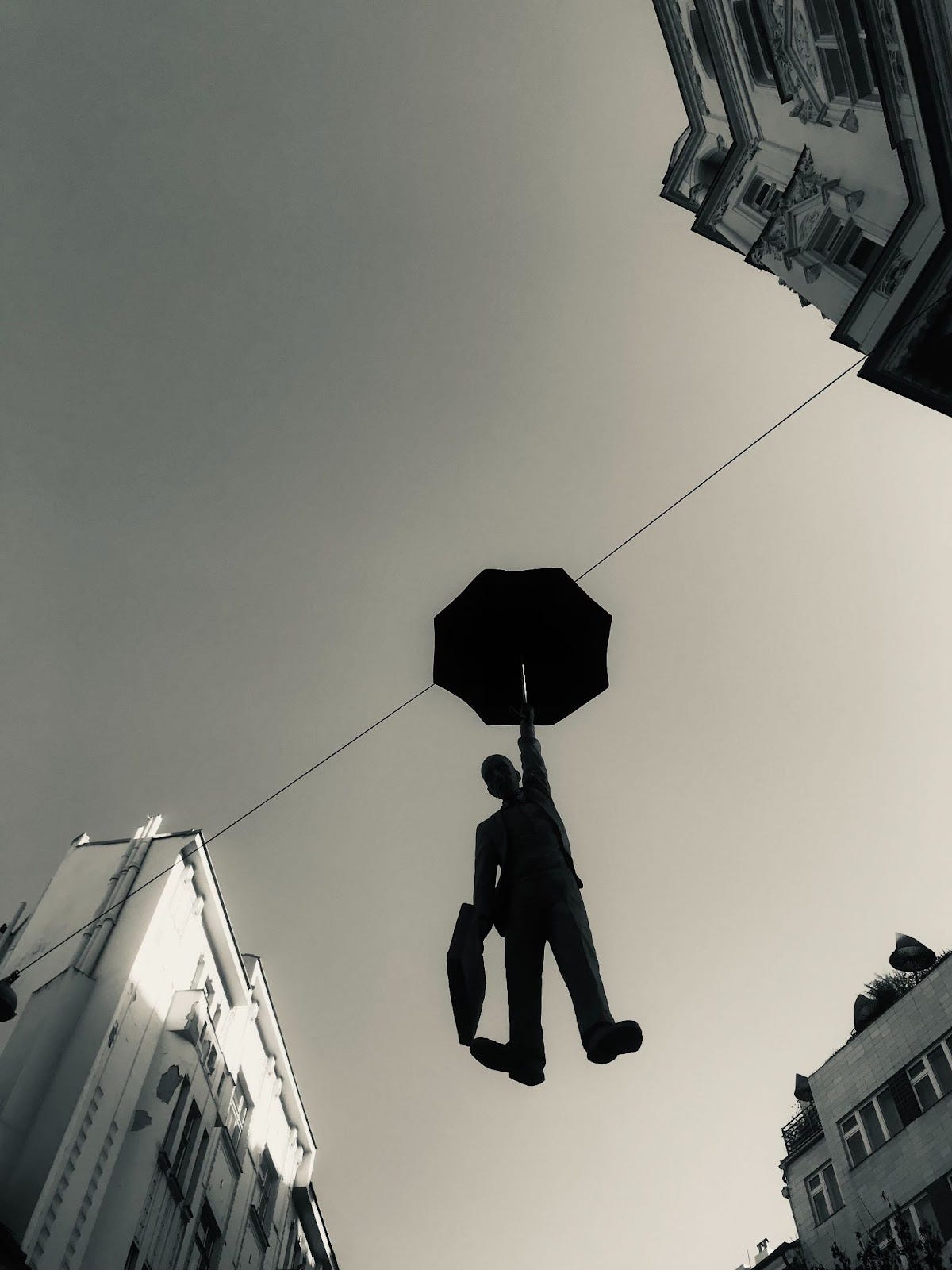Chapter 97: The Man Who Loved Essays
The course of the American essay swung one summer in the 1980s. Not a word was written and the motion was all a hammock’s, yet in it was Phillip Lopate, and he was having a literary epiphany
It started in a vacation home when he was perusing the bookshelf for holiday distractions and made a fateful choice: out came a volume of the essayist William Hazlitt, into the hammock they went. Any book of poetry would have confirmed his previous endeavors, fiction likewise. By the time Lopate emerged from his horizontal abandon, he had discovered the genre with which he’s since shared a symbiotic relationship.
Lopate’s services to the essay form are rather unparalleled; he edited a seminal anthology encompassing centuries, wove together an American tradition, and has taught the craft for many a year. Perhaps more importantly, Lopate invented Lopate, the personal essayist, that contagious voice in his reader’s head. Its effect is rather like channeling Escher while on a winding staircase. Risks include making you irrevocably question if you really do enjoy margaritas by the pool, or dare to go down the path of curmudgeonly delights, on the way to losing yourself in the garden of evergreen questions.
All of which makes you wonder –should hammocks prove elusive– how does one find the form of one’s writing life? He was generous enough to answer.
“Before I began writing essays, I was drawn to the first-person voice, in both poetry and fiction. I was especially drawn to its mischievous quality: its play between rationalization and self-disclosure, and its sudden dips into vulnerability or contrariety. Two novelists who meant a lot to me were Italo Svevo (Confessions of Zeno) and Machado de Assis (Epitaph for a Small Winner). I also loved Nietzsche for his restless disruptions of conventional wisdom. My ‘voice’ adjusted to whichever problem or audience I was aiming to address: it was never constant, but once I began writing essays I started to assemble elements of the Phillip Lopate character, which could then be transposed from piece to piece. I pretended I had a finished personality, for better or worse, and lo and behold that core of sensibility seemed to hold fast. Montaigne says that he fashioned himself by writing his essays, and I suppose the same was true for me.
“Obviously, the questions change from piece to piece, depending on their subject matter. But a good place for me to start is ambivalence. I question why I feel conflicting ways about a subject. Also, how can I pursue a thought so that it takes me somewhere surprising or new? An essay works, for me, when it follows a topographic path toward deeper honesty or complexity. When I start a piece, I am also in the dark as to whether it will work or not. Like Francis Crick and James Watson in The Double Helix, checking in on their DNA experiment at midnight when the lab was dark, I keep wondering if the essay will cohere. If it were a ceramic pot, would it be able to stand erect or would it topple over? As I go along in the writing I keep feeding it questions to sustain some sort of tension. If it becomes too static or self-satisfied, I have to crack it open again.
“I’m perfectly happy to be more or less satisfied with an essay when it’s done, and then to move on to the next challenge. I am not a perfectionist: I subscribe to the philosophy that when I’ve made it as fine as I can, that’s good enough—like D.W. Winnicott’s notion of the ‘good enough mother.’ I consider my corpus to be additive, with no one piece telling the whole story, but taken together, saying what I meant to say. I am never ‘satiated’ because I like the activity of writing, which amuses me and keeps me busy.
“Let us say I am writing for three audiences. The first is myself, and I try to be attentive to the voice in my head when it has calmed down enough to speak in articulate sentences, so that I can begin to transcribe it, to take dictation. I am not bossing it around, or demanding that I think brilliant thoughts; I am listening. The second audience is what Virginia Woolf called ‘the common reader,’ someone who has an adequate level of cultivation or education so that I did not have to explain everything from the word go or, worse, risk condescending to them. In other words, I don’t want to write DOWN to my readers. The third group consists of the Great Dead (Montaigne, Hazlitt, Lamb, Emerson, and so on) whom I am trying to write UP to, hoping they will excuse my gaucheries and forgive my lack of genius, as they peer down at me from their perch in heaven.”
Writing about oneself takes preparedness, honesty, and much more. Does it take a form of courage? How have you managed to sustain exposure?
“I think it requires doing a lot of preliminary psychic homework. You have to try to know yourself and see through your defenses. And yes, it takes courage sometimes. I get a thrill out of pushing at those squeamish places that require risky exposure. If someone reading it gets offended, I say, Screw ‘em!
“When I was younger, I would sometimes try to imitate an aspect of a writer I admired, like Cesare Pavese’s sadness or Walter Benjamin’s abstract elusiveness. I even tried imitating writers who were fundamentally my opposites, like John Ashbery, and the results were dreadful, but I learned what I could or could not do. I would also fuss a great deal over sentences, trying to channel my inner Flaubert. Now I just let it fly. I hope that some of my sentences will turn out to be elegant or striking, but I don’t require that every single one be so. As to how my character has changed, I suppose the most dramatic alteration has come from marriage and parenthood. The fact that I have these two people constantly in my head, my wife and my daughter, can’t help but make me aware that I am not exactly alone--I can no longer pretend to be that Lonely Guy, like Pavese.
“By reading and teaching and re-reading some of my masters, like Charles Lamb for instance, or Freud, or Max Beerbohm, I got their music in my head and saw their wonderful tricks, their sleights of hand. I did not have to reinvent the wheel; it was already there for the taking. It always amazes me that many of my students are resistant to writing from previous centuries, seemingly put off by semi-colons or complex sentences. To me, that tradition is the wellspring of the essay. I could not live without it.
“As to why the essay matters now, I would say we are living through a very confusing time, and the essay beautifully tolerates uncertainty, irresolution, and the intimate, honest individual voice, all of which we need desperately now as never before.”




